|
Edith Cavell (Dec 4, 1865 - Oct 12, 1915)
We pay tribute to the celebrated WW1 nurse and humanitarian
(© urban75, 25th Sept 2008)
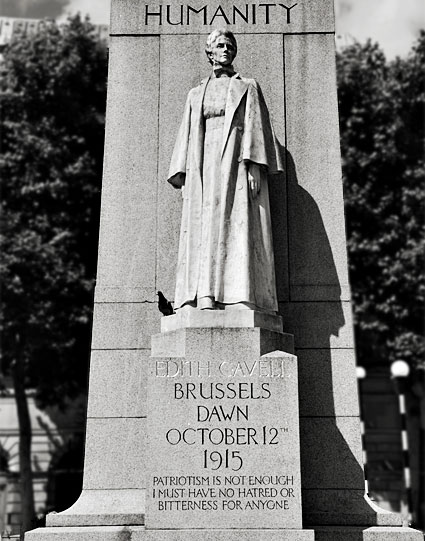
Cavell was born in Swardeston in Norfolk in 1865, and trained as a nurse at the Royal London Hospital before being appointed matron at Berkendael Institute in Brussels, Belgium in 1907.
After returning to England, news reached her of the German invasion of Belgium and she insisted on returning to aid the injured victims off war.
The hospital was taken over by the Red Cross at the outbreak of World War 1, and was behind enemy lines after the British retreat from Mons in 1914.
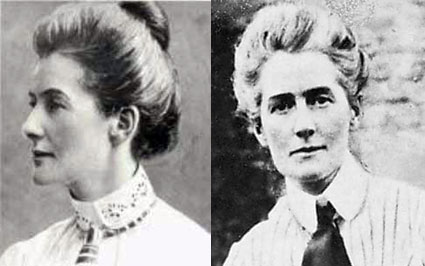

Cavell was treating soldiers of all nationalities - both friend and foe - but she also started to help British troops who had found their way to the school en route to neutral Holland.
After an underground network was set up, some 200 Allied soldiers escaped over the course of the following year.
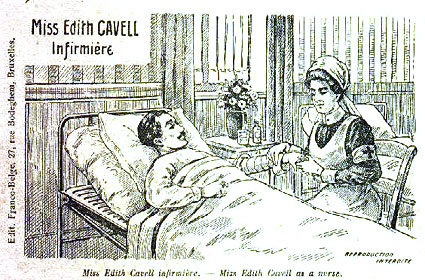
Betrayed by Belgian collaborators, Cavell was arrested on 3 August 1915 and charged with harbouring Allied soldiers.
She freely admitted her guilt and offered no defence and was put in prison for 10 weeks, the last two weeks being in solitary confinement before being court-martialled by the Germans.
Diplomatic efforts from the UK and the USA (who were yet to join the war) failed to move the German authorities and even a plea by Baron von der Lancken that Cavell should be pardoned because of her truthfulness and because she had helped save both Allied soldiers and German soldiers, fell on deaf ears.
The execution order was issued, apparently rushed though so that the higher German authorities would not get chance to issue a pardon.
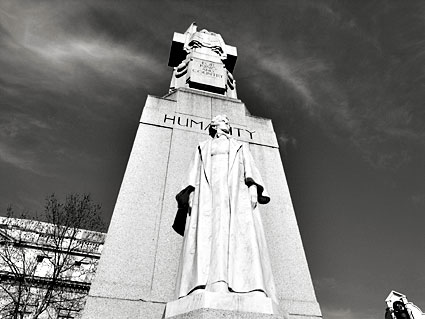
The order went out that Cavell was to be executed by firing squad at Tir National, Belgium at 2am on 12 October.
The night before her execution she told Revd Father Gahan, the Anglican chaplain giving her Holy Communion, "Patriotism is not enough, I must have no hatred or bitterness towards anyone."
These words can now be seen on the statue in Saint Martin's Place in London (see below).
Her final words to the German pastor, Le Seur, were: "Ask Father Gahan to tell my loved ones later on that my soul, as I believe, is safe, and that I am glad to die for my country."

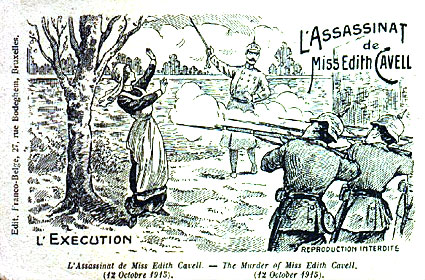
Execution
There seems to be several conflicting reports about the actual execution: one account says that Cavell became faint on the way to the wall, collapsing to the ground where she was shot dead by the German commanding officer while still unconscious.
Another story says that the execution went ahead as normal with eight soldiers shooting Cavell, although it's widely reported that a Private Rimmel refused to shoot Cavell and threw down his rifle.
For this he was executed by his commanding officer and hastily buried by Cavell's grave.

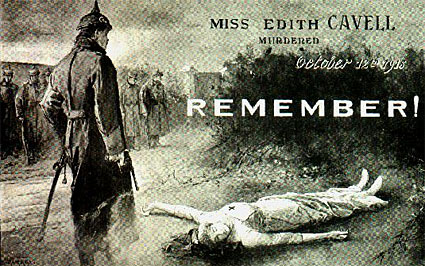
After her death, Cavell became a popular martyr with her execution proving a major coup for British propaganda and influencing America's decision to join the war.

Memorials
Many memorials were created around the world to remember Cavell after her death. Streets were named after her in Brussels, Belgium; Nice, France; Lisbon, Portugal; Winnipeg, Manitoba; Port Stanley, Ontario; Port Louis in Mauritius and Trenton, New Jersey.
Oh, and err, part of the Queensgate multi-story car park in Peterborough, England.
See a full listing of memorials  here here
Here's some photos of the statue in memory of Edith Cavell in London, opposite the National Portrait Gallery, St. Martin's Place, near Trafalgar Square.
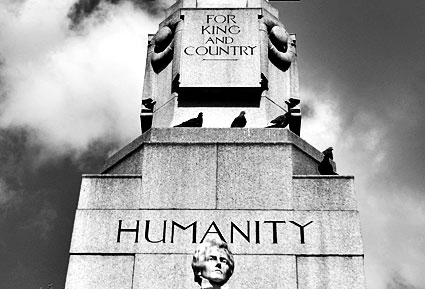
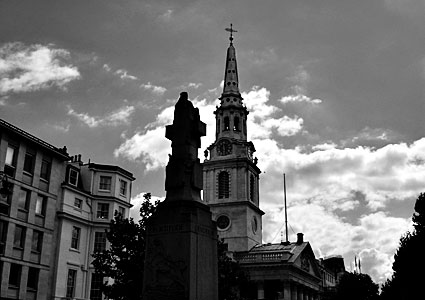
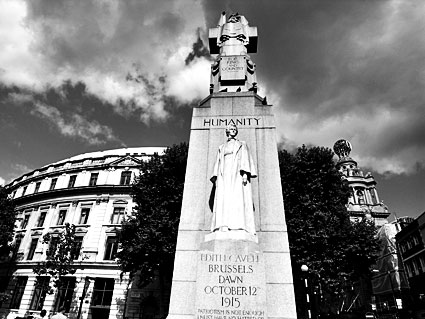
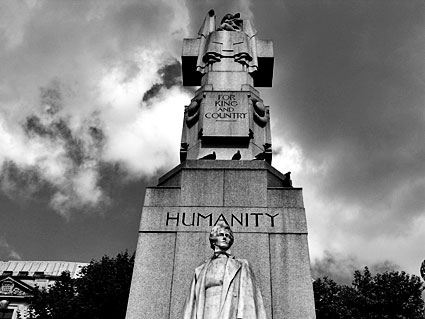

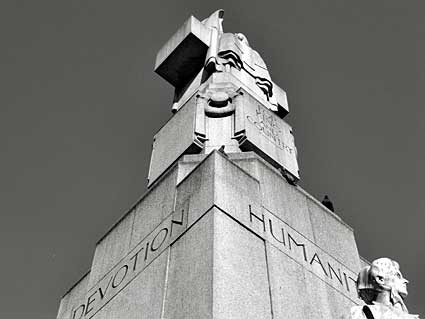
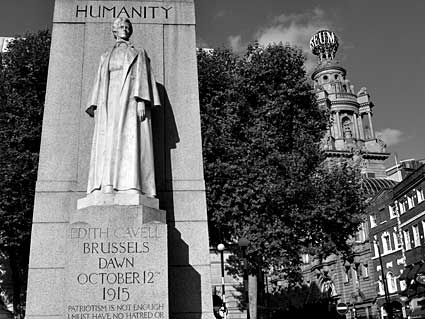
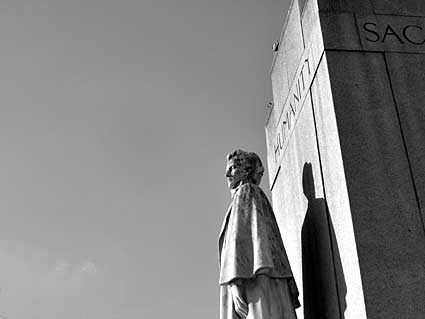
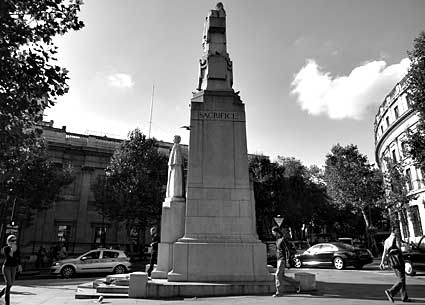

« London homepage
|

